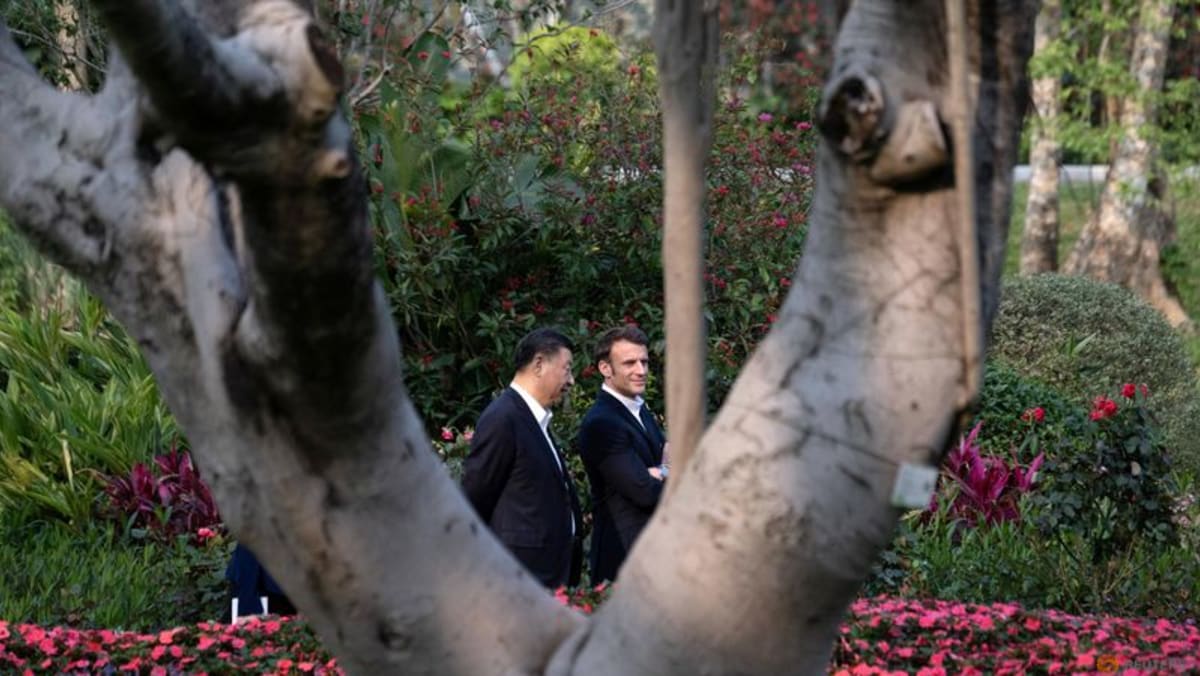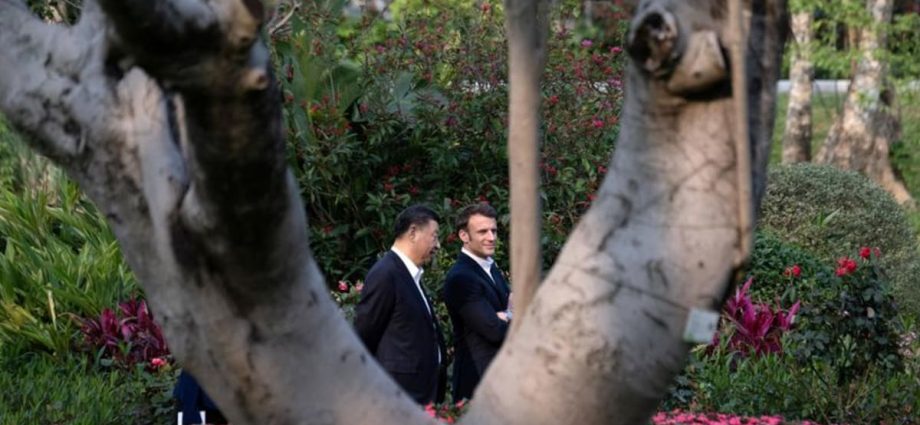
PARIS: French officials were in damage control mode on Tuesday (Apr 11) as they tried to contain anger, division and confusion sparked by President Emmanuel Macron’s comments on Europe’s dependence on the United States and its relations with China and Taiwan.
Macron’s comments came in an interview on a trip to China that was meant to showcase European unity on China policy, with European Commission President Ursula von der Leyen also taking part, but highlighted differences within the European Union.
In the interview with French daily Les Echos and news portal Politico published on Sunday, Macron called for the EU to reduce its dependence on the US and to become a “third pole” in world affairs alongside Washington and Beijing.
As European politicians and diplomats returned to work after the long Easter holiday weekend, they were still struggling to digest Macron’s comments, in which he also cautioned against being drawn into a crisis over Taiwan driven by an “American rhythm and a Chinese overreaction”.
While many of the remarks were not new, the timing of their publication – at the end of a high-profile trip to China, as Beijing carried out military exercises near Taiwan – and their bluntness annoyed countries in eastern Europe.
Many governments in that region see ties with the United States as sacrosanct, particularly given Washington’s key role in helping Ukraine defend against Russia’s invasion.
“The return of geopolitics means that we have to see more clearly who is our ally and who is not. Strong transatlantic relations between Europe and the US are the foundation of our security,” Czech Foreign Minister Jan Lipavsky told Reuters.
“Europe must invest more in its own security, but I do not see that as an obstacle or a limit for cooperation with the USA,” he said via a spokesman.
A senior diplomat from Central and Eastern Europe, speaking on condition of anonymity, said: “President Macron is not speaking for Europe or the European Union. He is unwittingly helping Beijing to dismantle transatlantic unity at the time of war in Europe, when it is most needed.”
Marcin Przydacz, a foreign policy adviser to Polish President Andrzej Duda, made clear Warsaw was not in favour of any shift away from Washington.
“We believe that more America is needed in Europe,” he told Polish broadcaster Radio Zet. He added pointedly: “Today the United States is more of a guarantee of safety in Europe than France.”
Such criticism prompted French officials and diplomats to stress that Macron did not suggest Europe should be equidistant geopolitically from Washington and Beijing, simply that Europe’s interests will sometimes differ from those of the United States.
The French foreign ministry cancelled a planned debrief on the trip for foreign diplomats in Paris on Tuesday as officials scrambled to make sure they had a consistent message and to limit any fallout with Washington.
The initial response from Washington was measured. Without directly addressing Macron’s comments, the US State Department spokesperson and the White House lauded the bilateral relationship with Paris and its role in the Indo-Pacific region and Ukraine. But there was broader unease.
If Europe doesn’t “pick sides between the US and China over Taiwan, then maybe we shouldn’t be picking sides either [on Ukraine],” US Republican Senator Marco Rubio said in a video drawing parallels with the conflict in Ukraine.

